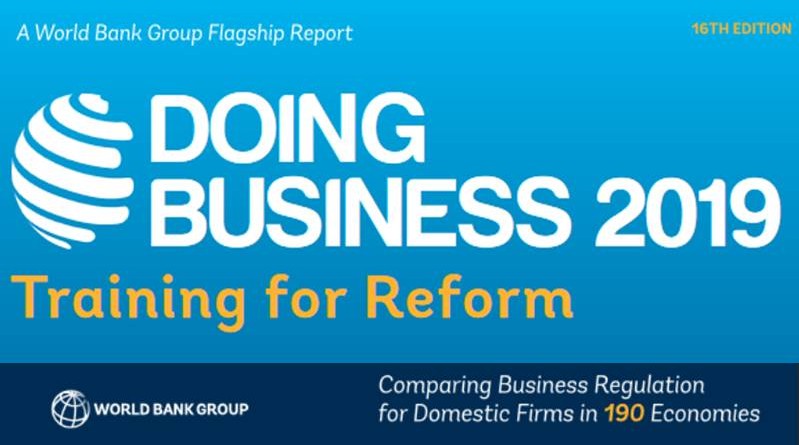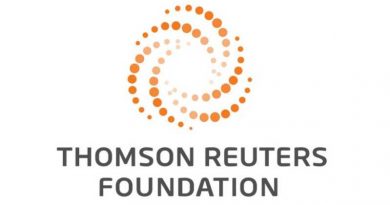Stakeholders Express Concerns Over Ease Of Doing Business Ratings
This news was originally published by Dailyindependent.ng
Ease-of-doing-business which is an index created by the World Bank, where higher rankings indicate better, usually simpler regulations for businesses and stronger protections of property rights has been of concern to Federal Government and Nigerians. The Ease of doing business index ranks countries against each other based on how the regulatory environment is conducive to business operation and stronger protections of property rights. Economies with a high rank (1 to 20) have simpler and more friendly regulations for businesses. In this report, MOHAMMED SHOSANYA, JUSTUS ADEJUMOH and ISAAC ASABOR of DailyIndependent.ng writes.
When the World Bank Doing Business Report 2016 was published, Nigeria was ranked as one of the worst places to do business in 2016.
According to the report, Nigeria’s ranking for starting business dropped eight places from 131st position in 2015 to 139th in the year that was under review.
The report also stated that accessing electricity became more difficult in 2016 as supply rating across the country fell from 181st position to 182nd while registering property improved by four places from 185th to 181st, and getting credit and loans became tougher with a seven place drop in ranking from 52nd ranking to 59th.
However, according to analysts, Nigeria’s rating on Ease of Doing Business Report under the auspices of the World Bank relatively and comparatively improved as it ranked 146 among 190 economies in the ease of doing business; and this was as a result of World Bank annual ratings at that time.
The rank of Nigeria deteriorated to 146 in 2018 from 145 in 2017. Ease of Doing Business in Nigeria averaged 145.09 from 2008 until 2018, reaching an all-time high of 170 in 2014 and a record low of 120 in 2008.
According to World Bank’s explanation on what Ease of Doing Business is all about, The Ease of Doing Business project provides objective measures of business regulations and their enforcement across 190 economies and selected cities at the subnational and regional level.
It was launched in 2002, looks at domestic small and medium-size companies, and measures the regulations applying to them through their life cycle.
Speaking on the outlook of Ease of Doing Business, Olajumoke Omoniyi Oduwole, the senior special assistant to the president on industry, trade and investment, said Nigeria must better its goal of achieving the top 100 by 2020 in the ease of doing business ranking.
Oduwole, who is also the secretary of the Presidential Enabling Business Environment Council (PEBEC) had also said that the 2018 Making Business Work Report of PEBEC disclosed that to achieve that goal, the nation needs to climb up 45 places in the World Bank ease of doing business index over the next 24 months.
Nigeria is presently ranked 145 among 190 economies, according to the latest World Bank annual rating.
Oduwole also said PEBEC had initiated industry-wide reforms in order to ensure even better public service delivery and an improved business environment for micro, small and medium scale enterprises (MSMEs).
Nigeria must improve its ranking by 45 places in the World Bank Ease of Doing Business Index over the next two years to achieve its goal of attaining the top 100 by 2020.
Such an ambitious goal requires accelerated and focused execution of Government Executive Order and National Action Plans (NAP).
It is clear that Nigeria must now intensify its reform efforts; and the PEBEC will continue to work closely with the public and private sectors to institutionalise its reforms, cascade them to state level, and refine and improve the business environment.
In the second half of 2018 and into 2019, the PEBEC will focus primarily on regulators, an Omnibus Bill on business facilitation, and consolidating gains for the economy through the deepening of the subnational Ease of Doing Business project.
The PEBEC secretary noted that Nigeria is bouncing back from significant macroeconomic distress and setting an example for other African countries to emulate.
She said PEBEC is building the capacity of the ministries, departments and agencies to foster cooperation between them and states, the national assembly and private sector.
This dedicated focus resulted in Nigeria moving up 24 places in the 2018 World Bank’s Ease of Doing Business report- moving from 169 place in 2017 to 145 place in 2018. What is more, Nigeria was judged as one of the ten most improved economies in the world. This is a no-mean achievement which deserves applause. Nigeria showed improvements in seven key activity areas- paying taxes (182-171), registering property (182-179), getting electricity (180-172), getting construction permit (174-147), access to credit (32-6), enforcing contracts (139-96), and starting a business (138-130).
As can be seen the most significant improvements were recorded in access to credit, enforcing contracts, construction permits and paying taxes. Anybody who has watched will have noted that these improvements were result of visible focus and actions taken in these areas.
While commenting on a similar ratings on Nigeria’s economy, Mr. Mazi Sam Ohuabunwa said: Though the recently released World Economic Forum (WEF) 2018 Global Competitiveness Index rating showed that Nigeria went back from overall 112 ranking in 2017 to 115 ranking in 2018, there is clear evidence that the free fall has been arrested and if we continue to mandate reforms and enforce and monitor the reforms, positive changes will occur.
My main point is that changing our economic, political and social conditions are possible if we inculcate the habit of breaking down the issues into identifiable manageable bits, designing the changes we want, working with stakeholders to take action to effect the changes, monitoring, rewarding compliance and punishing non- compliance. Yes, some may argue that the changes have not yet made the expected impact on a wide scale across the economy, for example, the access to credit where Nigeria jumped 26 positions from 32 to 6.
– DAILYINDEPENDENT.NG




